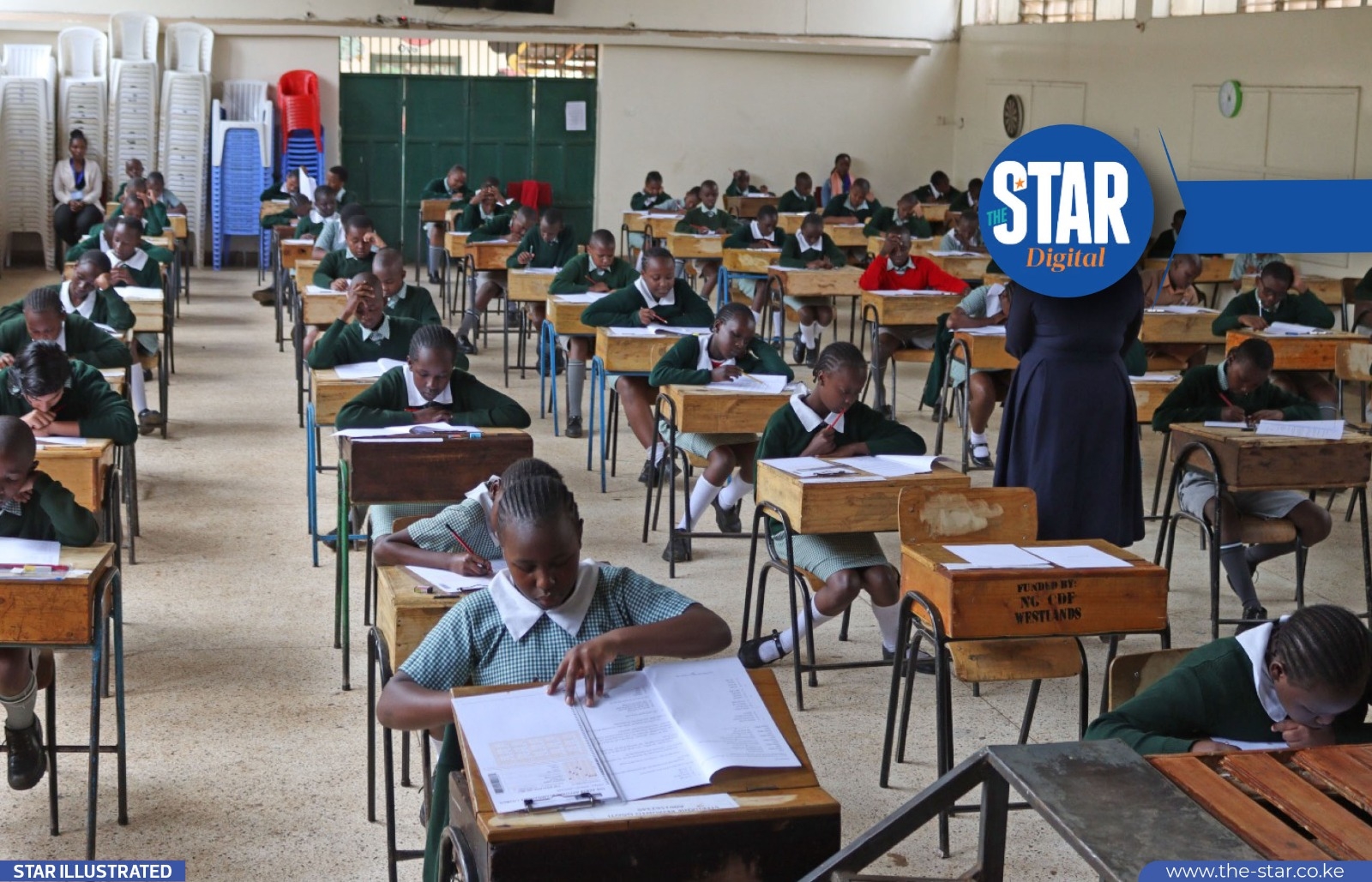
The Auditor General has flagged widespread irregular procurement running into billions of shillings in Nairobi county, raising questions on financial prudence in expenditure.
The Auditor-General’s Report on the County Governments: County Executives 2023-24 found flaws in the procurement of insurance cover, goods and services, non-pharmaceuticals as well as construction work.
For instance, the Auditor General flagged irregular procurements in the affordable housing projects in Woodley, Kariobangi North, Bahati and Ziwani estates.
In the housing programme, the county plans to put up 9,000 units in Bahati, 3,400 in Woodley, 2,500 in Ziwani and 2,000 in Kariobangi North.
The report found land ownership, value for money and regularity for the housing projects worth Sh31 billion could not be confirmed.
The auditor raised issues with the irregular procurement of renovation of flats in Uhuru Estate at Sh39,866,880 for six months. However, the report said, the budgetary provision was Sh17,750,000, which was insufficient.
This is contrary to Section 53(8) of the Public Procurement and Asset Disposal Act, 2015, which provides: “Accounting officer shall not commence any procurement proceeding until satisfied that sufficient funds to meet the obligations of the resulting contract are reflected in its approved budget estimates”.
Further, a technical inspection report showed paintwork was incomplete as it had covered 74 per cent of the total specified area.
“As at November, 2024, the contract duration had already lapsed, while the paintworks and roofing remained incomplete,” the auditor said.
“There was no evidence of extension of contract period and the project had stalled. In the circumstances, the county was in breach of the law and value for money spent on the renovation works could not be confirmed.”
The Johnson Sakaja-led county was also flagged over irregular procurement for construction and civil works, such as a perimeter wall in Mji wa Huruma for the elderly persons, rehabilitation of roads in Eastleigh and Industrial Area as well as street lighting.
The contractor was awarded a contract to rehabilitate roads in Eastleigh and paid Sh26,192,358. The payment was not supported with procurement documents.
Inspection reports did not give a separate technical evaluation of each single road, thus it was not possible to assess the percentage of works completed as at the time of payment.
In the Industrial Area, the county paid Sh140,313,872 to various contractors for the rehabilitation of roads, but the work took more than two years to be completed.
Further, the payments were also not supported with requisite procurement documents contrary to Section 68(1) of the Public Procurement and Asset Disposal Act, 2015. The law requires an accounting officer of a procuring entity to keep records for each procurement for at least six years after the contract has been completed.
The auditor found the regularity and value for money on the expenditure of Sh140,313,872 could not be confirmed.
The county executive also awarded contracts worth Sh1,881,496,045 for various construction and civil works projects.
However, payments amounting to Sh179,621,620 revealed that the contracts were awarded without publishing advertisements in the public procurement portal as required by the law.
“As a result, it was impossible to confirm how the evaluated contractors were invited to tender,” the report said.
SERVICES
The Nairobi County Executive also awarded a contract for a comprehensive medical insurance cover for 7,521 staff members of the now-defunct Nairobi Metropolitan Services for four months in the financial year ended June, 30 2023.
However, the county had an existing contract with the insurance company from November 29, 2022 at a contract price of Sh648,856,505.
“No explanation was given on why the county executive signed a new contract for the provision of comprehensive medical cover with the same insurance company when there was an existing active contract,” the report said.
“In addition, the procurement records for both contracts were not provided for audit.”
In the circumstances, the Auditor General found that value for money on the expenditure used on insurance services could not be confirmed.
The procurement mess extends to service delivery, whereby Gathungu’s report queried the irregular payment for consultancy for Development of the County Tourism Policy that cost Sh5 million.
The tender wasn’t advertised and that notification for award, professional opinion and acceptance of award were also issued on the same day, contrary to the procurement law.
Section 135(3) of the Public Procurement and Asset Disposal Act, 2015 provides: “The written contract shall be entered into within the period specified in the notification but not before 14 days have elapsed following the giving of that notification, provided that a contract shall be signed within the tender validity period.”
Among other anomalies, the regularity of Sh4,999,999 spent on the development of the County Tourism Policy could not be confirmed, the report said.
The Auditor General also queried the procurement of a 10-year consultancy service for sub-sector strategic plan, for which the county paid Sh4,571, 100 to a local consultant. This was out of the total contract cost of Sh11,399,991.
However, the professional opinion was not supported by an evaluation report signed by all the evaluation committee members as required by law.
The county was also found to have irregularly paid Sh49,955,400 to a contractor for events management during the two-day Battle of Choirs Second Edition at Kenyatta International Conference Centre from March 31, 2024.
The payments were made despite KICC offering events planning coordination services and amenities, including audio-visual equipment. There was no justification for contracting the same services through a third party.
The contracting of an events manager for Nairobi City Festival at Uhuru Central Park by two bidders at Sh25 million and Sh27 million was found to have anomalies, such as failure to sign the evaluation scoring and lack of evidence of performance bond issued by either of the contracted bidders.
In addition, there was no evidence of a tender for the provision of communication and public relations services for the Nairobi City Festival at Sh7,986,000 being advertised in newspapers or on the county executive’s website.
The auditor found anomalies in provision of legal services, with a pending bill of Sh17 billion for which the county paid Sh483,835,759 during the year under review.
However, the advocates were appointed directly from a list of prequalified legal firms without a mini competition. Out of the 159 court cases the county had as at June 30, 2024, 65 were assigned to just eight advocates, with the number of cases per advocate ranging from four to 20.
The county did not also provide an explanation for the criteria used to allocate multiple cases to the eight advocates out of the 350 prequalified.
In the circumstances, the auditor said, regularity of expenditure Sh40,883,960 spent on public participation and provision of conference services could not be confirmed, and the county was in breach of the law.
EQUIPMENT AND VEHICLES
The report also flagged the irregular procurement of garbage skips and skip loaders.
While procurement records showed 120 garbage skips were bought at Sh51,600,000, the auditor general found no evidence of market survey to inform their purchase at Sh430,000.
As at October, 2024, only 41 garbage skips had been delivered, while the contract validity period had lapsed. Value for money for Sh425,750 could not be confirmed, the report said.
The county also irregularly hired heavy machinery and paid Sh175,063,145.
Review for the hire of three heavy equipment showed they were hired at the rate of Sh13,500 per hour instead of the contract amount of Sh10,000 per hour. This resulted in an overpayment of Sh2,684,500.
Further, review revealed variances in actual hours between the payment schedule detail and the submitted invoices, resulting in an excess payment of Sh6,562,063.
The auditor’s review of various payments towards routine maintenance of county vehicles totalling Sh7,280,357 found various anomalies.
For instance, the payments were not backed with requisite procurement documents contrary to the law, which requires an evaluation report be prepared.
The payment was not supported with records of goods received, statements showing receipt of the returned spare parts after repair and maintenance of the vehicles.














